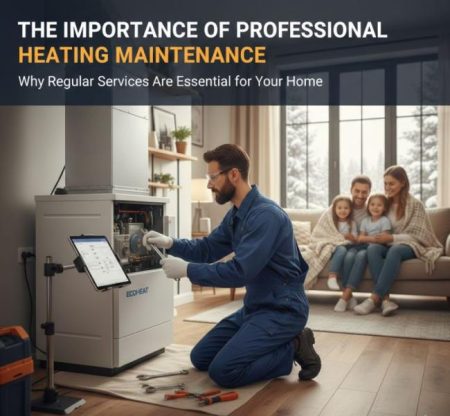Picking any type of HVAC unit can be quite difficult.
If you’re familiar with HVAC systems, you know that there isn’t a one-size-fits-all answer to the common question, “what is the best home air purification system?”.
Different homes have different needs, and there are a variety of air purification systems on the market to choose from.
However, there are some general things you should look for when choosing an air purifier. This blog post will discuss the common topic, “what is the best home air purification system for homeowners?”.
So read on to learn more about what to consider when buying an air purifier, and find out which system might be right for your home.
Click the following link to find more information about HVAC services in Fayetteville, AR.
What is the best home air purification system for homeowners?
There are several types of home air purification systems that homeowners can choose from.
The extensive variety makes it difficult for many homeowners to pick the best whole home air purification system. However, you can’t go wrong with one of the following types of products:
HEPA Filters
HEPA filters are often considered the most effective type of air purifier, as they are able to remove 99.97% of all particles that are 0.3 microns (or larger) from the air. HEPA filters force air through a mesh that traps all of the particles that are larger than the holes in the mesh. While HEPA filters are very effective, they can be expensive and may need to be replaced frequently.
Activated Carbon Filters
Activated carbon filters are another type of air purifier that can be used in the home. These filters work by adsorbing pollutants onto their surface, which prevents them from being released into the air. Activated carbon filters are most effective at removing volatile organic compounds (VOCs), smoke, and odors from the air.
Ultraviolet Germicidal Irradiation (UVGI)
UVGI is a type of air purifier unit that uses ultraviolet light to kill bacteria and viruses. UVGI purifiers typically have a UV lamp that emits UV light into the air, which kills any microorganisms that come into contact with it. UVGI purifiers are effective at reducing airborne illnesses, but they can be expensive and require regular maintenance.
Ionizers
Ionizers are a type of air purifier that work by charging particles in the air so that they stick to surfaces or each other. Ionizers typically have a negatively charged electrode that emits electrons into the air, which attach to positively charged particles such as dust, pollen, and mold spores. Once these particles are charged, they will either stick to surfaces or clump together so that they can be removed from the air more easily.
At the end of the day, the answer to the question, “what is the best home air purification system for homeowners?”, depends on your personal preferences and project budget.
How often should you have your home’s air purification system serviced or replaced to ensure optimal performance levels?
Most home air purification systems should be professionally serviced at least once a year, and some may need to be replaced more frequently. The best way to determine how often your system needs to be serviced or replaced is to consult the manufacturer’s guidelines.
However, there are a few general rules of thumb that can help you keep your air purifier running smoothly. First, be sure to check the filter and replace it if it seems clogged or dirty. Second, make sure the unit is properly vented so that air can circulate freely. Lastly, if you notice that the unit isn’t performing as well as it used to, it’s probably time for a tune-up.
Are there any potential health risks associated with using the best home air purification system?
Despite the fact that home air purification systems are designed to improve indoor air quality, there is some debate about whether or not they are actually effective.
Some studies have found that these devices can remove certain pollutants from the air, but there is no evidence that they have any impact on overall health. Additionally, some purifiers use ozone to clean the air, which can be harmful to lung tissue. For people with asthma or other respiratory conditions, it is important to consult a doctor before using an air purifier.
Overall, there is no clear evidence that home air purification systems are harmful, but more research is needed to determine their long-term effects.
Can a home air purification system help reduce allergies or asthma symptoms?
For people with allergies or asthma, airborne particles can be a trigger for symptoms like sneezing, coughing, and difficulty breathing. While there is no cure for these conditions, many people find that using an air purifier can help to reduce symptoms.
Air purifiers work by trapping harmful particles like dust, pollen, and animal dander in a filter, which helps to create a cleaner and healthier indoor environment. In addition, some air purifiers also release negative ions into the air, which can help to reduce the number of airborne particles.
What is the best home air purification system? — Conclusion
Choosing the best home air purification system can seem daunting, but with a little research it is possible to find the perfect one for your needs. The right system can significantly reduce dust and debris, helping you maintain cleaner air and a healthier living environment.
Contacting a professional HVAC service can help you figure out which type of home air purification system would be ideal for your home and lifestyle. They can also provide maintenance and installation services to ensure that your new air purifier works correctly and keeps your family safe and healthy.






